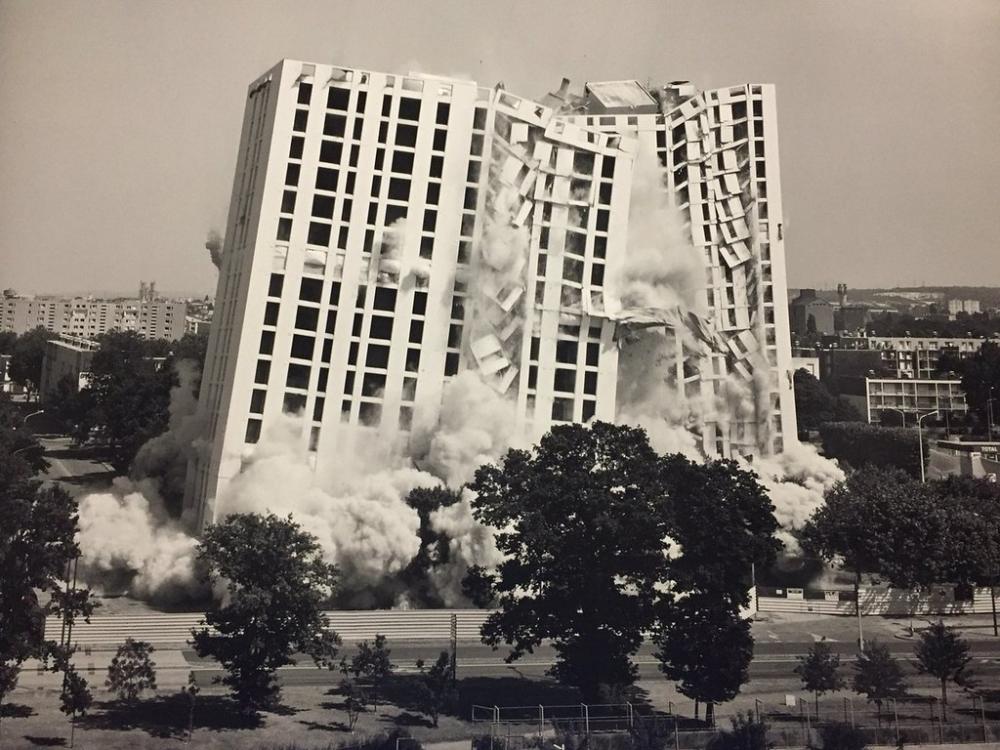Who owns the city? On the "financialisation" of urban housing
Just like a tree planted by the water, I shall not be moved
– Mavis Staples
Since the financial crisis in 2008, housing is no longer a basic right, but an attractive investment or financial product used by (big) capital as a safe haven. Listed real estate companies, hedge funds, private equity firms and real estate investment funds are increasingly investing in the (rental) housing market by, for example, buying up entire blocks of flats. In their hunger for more profit, these investors lobby for deregulation and drive up rents and purchase prices, or deliberately allow these houses to decay in order to demolish them and build (often expensive) apartment towers in their place. Gradually, the most precarious population groups and 'have-nots' are priced out of the market, pushed out of the city where they have sometimes lived for generations and put down roots.
This is familiar scenario, also in Brussels. Who does the city really belong to? Do residents still have a say in their neighbourhood? How much control do local politicians retain over the city? Do we understand enough about what is really going on?
In this programme, together with Leilani Farha, Fredrik Gertten and Alice Romainville, we take a deeper look at the root causes of these urban problems and processes of change. The scenography was provided by Lietje Bauwens and Wouter de Raeve.
On the programme:
- An interview with Leilani Farha (former UN rapporteur for the right to housing & main character in documentary PUSH) – live from Canada –about how the tendencies she observed during the shooting of PUSH have developed since then and about her latest project, The Shift (www.make-the-shift.org). Moderated by Quinsy Gario.
- A panel discussion with, among others, the PUSH director Fredrik Gertten and Alice Romainville (Brussels Studies Institute/ULB, specialised in the Brussels housing market). In the front row, we invite organizations, activists and residents who are on the front lines of these issues to enrich the conversation with their indispensable perspective. Moderated by Quinsy Gario.
- A first row, with representants of organisations such as FairFin, Rassemblement Bruxellois pour le Droit à l' Habitat, Coordination des Sans-Papiers and European Action Coalition will add to the conversation with their points of view.
- A spoken word performance
• Quinsy Gario is a performance poet and artist from Curaçao and St. Maarten. His work centers on decolonial remembering and unsettling institutional and interpersonal normalizations of colonial practices. Gario's most well-known work is Zwarte Piet Is Racisme (2011–2012). As a member of the collective Family Connection established in 2005 by Glenda Martinus and Gala Martinus, respectively his mother and aunt, his current research is about attempting to institute otherwise.
• Leilani Farha is the former UN Special Rapporteur on the Right to Housing and Global Director of The Shift. Her work is animated by the principle that housing is a social good, not a commodity. Leilani has helped develop global human rights standards on the right to housing, including through her topical reports on homelessness, the financialization of housing, informal settlements, rights-based housing strategies, and the first UN Guidelines for the implementation of the right to housing. She is the central character in the documentary PUSH regarding the financialization of housing, screening around the world. Leilani Launched The Shift in 2017 with the UN Office of the High Commissioner for Human Rights and United Cities and Local Government.
• Frederik Gertten is a director and journalist based in Malmö, Sweden, and owner and manager of the production company WG Film which he founded in 1994. Previously he worked as a foreign correspondent and columnist for radio, TV and press in Africa, Latin America, Asia and around Europe. Today he combines filmmaking with a role as a creative producer at WG Film. Recent films include PUSH (2019), BIG BOYS GONE BANANAS!* (2012) and BIKES VS CARS (2015).
• Alice Romainville is a researcher at the Laboratory of Human Geography at the ULB. Her doctoral thesis, defended in 2015, is entitled La production capitaliste des logements à Bruxelles.
• 431 initiates multidisciplinary frameworks for the creation, curation, and research of forms of knowledge production and presentation such as spatial interventions, text, performance and film. Each project puts forward its own specific methodology. 431 is initiated by Lietje Bauwens and Wouter De Raeve. Bauwens (1990) studied philosophy, writes for different cultural platforms, and was artist in residence at the Van Eyck academy 2018–19. De Raeve (1982) studied landscape architecture and visual arts and produced several lecture series, publications and installations.
collaboration of Cosmopolis, Brussels Academy, Community Land Trust Brussels, Brussels Centre of Urban Studies & Kaaitheater.
Voor dit debat heb je een festivalbandje nodig. → koop je bandje
Voor dit programma heb je een Covid Safe Ticket nodig. Hier vind je meer info. Lees ook het Kaaitheater statement: Wie heeft toegang tot theater?
